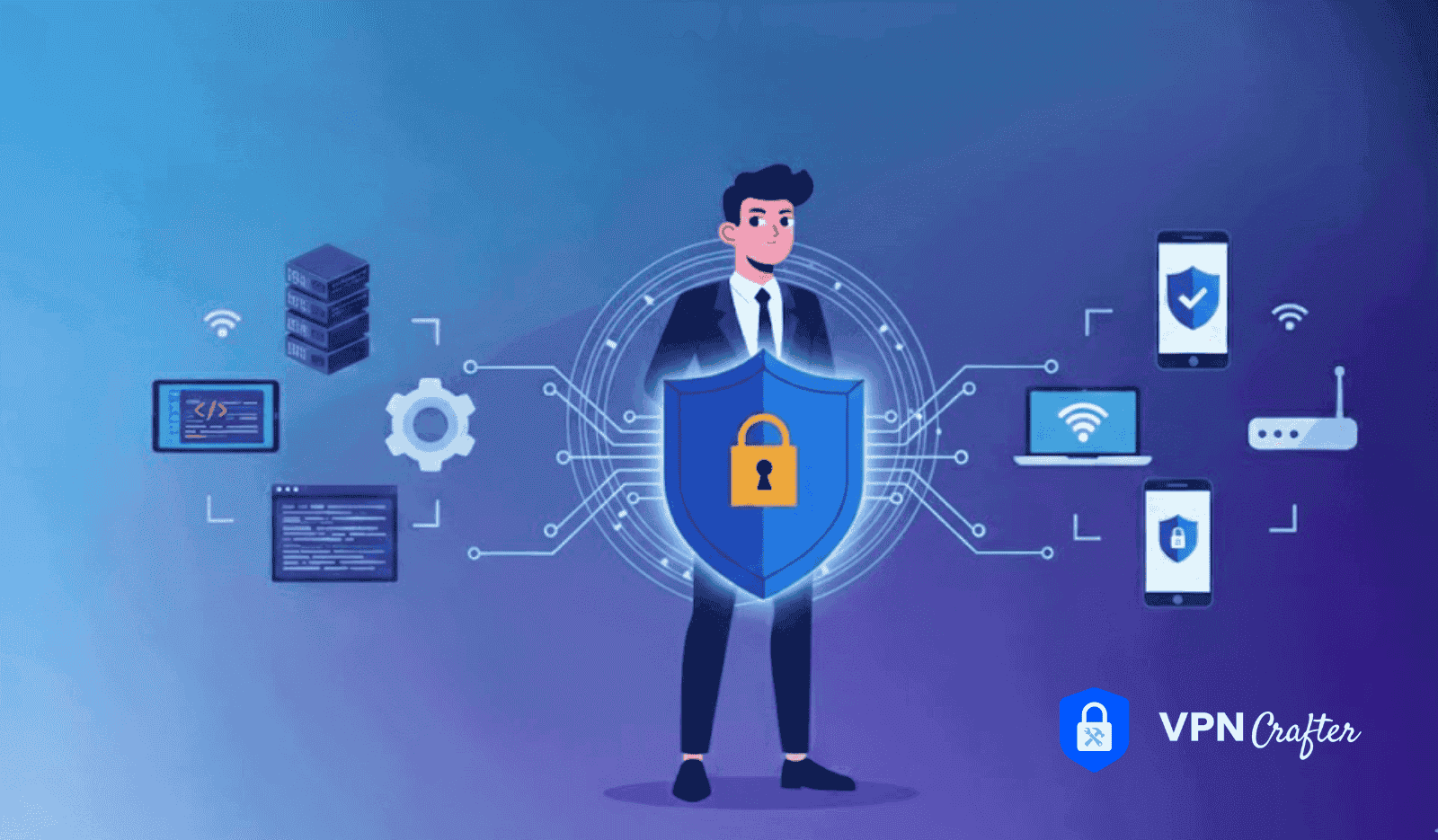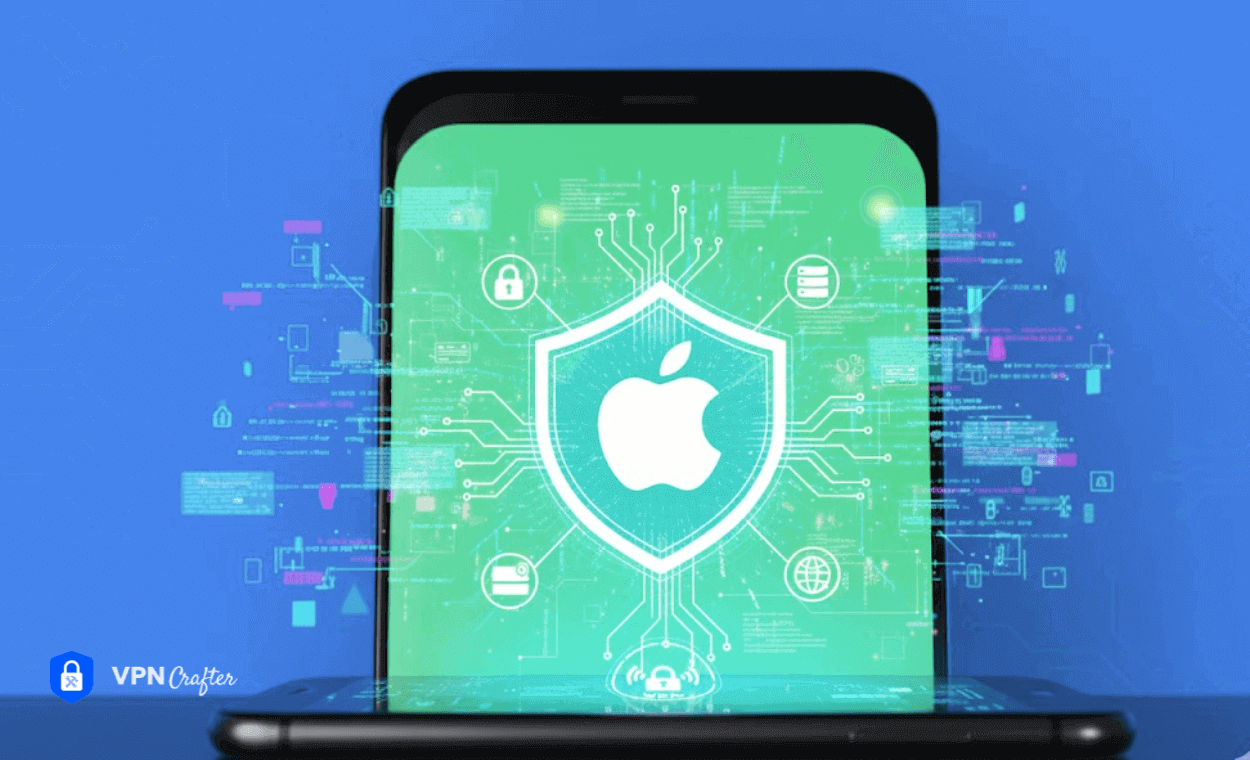Looking for a smart way to make money while you sleep—without renting out property, investing huge capital, or chasing clients all day?
You’re not alone. In a technology-powered city like Dubai, the idea of passive income sounds amazing, but most options either require big upfront costs or feel out of reach. And when it comes to digital income streams, selling VPNs might catch your eye—but then come the questions: Is it legal here? How do I even start? Will anyone buy from me?
Here’s the truth: yes, you can earn steady passive income by selling VPNs in Dubai—if you do it the right way. In this blog post, we’ll walk you through a simple, proven approach to get started, grow your reach, and start generating income with minimal effort over time.
What are The Key Regulations I Need to Follow When Selling VPNs in The UAE
Selling VPNs in the UAE is a highly sensitive matter due to the country’s strict cybersecurity laws and telecommunications regulations.
While VPN technology itself is not illegal, its use is tightly controlled. Here are the key regulations and considerations you must follow when selling or distributing VPN services in the UAE.
VPNs are legal, but their use is heavily regulated
In the UAE, selling VPNs is not inherently illegal. What matters most is how the VPNs are used and how they are positioned in the market. The UAE permits VPN technology for legitimate purposes, such as securing business communications or accessing corporate networks.
However, if VPNs are used to commit or conceal crimes—such as accessing VoIP services that are restricted, viewing pornography, gambling, or any content deemed illegal in the UAE—it becomes a punishable offense.
This is covered under Federal Decree Law No. 34 of 2021, which targets cybercrime and misuse of technology. So, while you can sell VPNs, you must ensure they are not promoted or used for unlawful access.
A license is essential to operate legally
If you plan to operate as a VPN provider within the UAE, you must secure a proper license from the Telecommunications and Digital Government Regulatory Authority (TDRA).
The TDRA oversees and enforces regulations for all telecommunications services in the country. Without this licensing, your business would be considered unregistered and potentially unlawful. Moreover, partnerships with licensed telecom operators like Etisalat or du may be required if you want to operate infrastructure within the UAE.
Avoid promoting VPNs for circumvention
How you advertise your VPN services is just as important as how you deliver them. Marketing language that promotes bypassing government restrictions can quickly land you in legal trouble.
This includes promoting VPNs as a way to access banned VoIP services, stream foreign versions of Netflix, or “browse anonymously” in a way that implies concealment from UAE authorities.
These types of promotions are considered incitement to commit a cybercrime, and businesses engaging in this kind of advertising have faced domain blocks, fines, and even criminal charges.
Data privacy laws must be respected
The UAE has implemented strict data protection regulations under the Personal Data Protection Law (PDPL), which requires businesses to be transparent about how they collect, store, and share user data.
If your VPN service logs user activity or retains metadata, you must clearly disclose this in your privacy policy and terms of service.
Authorities may also request access to these logs if there is suspicion of criminal activity. Maintaining transparency and compliance with these privacy regulations is crucial if you want to build trust and avoid penalties.
Hosting VPN servers in the UAE comes with conditions
Setting up servers within UAE borders introduces another layer of regulation. You’ll need approval from the TDRA, and you’ll likely be required to operate under a licensed telecom provider.
Moreover, your infrastructure must not interfere with state surveillance or lawful interception mechanisms. For this reason, many businesses offering VPNs in the UAE choose to host their servers abroad and offer encrypted access in a way that is fully transparent and lawful.
Selling from outside the UAE still has legal risks
Even if your business is based outside the UAE, offering VPN services to UAE users comes with its own risks. Authorities may choose to block your site if it’s seen as promoting illegal activity, and end users in the UAE can still face consequences if they use your service to access restricted platforms.
Although your business may not be directly prosecuted, repeated violations or complaints can lead to blacklisting and domain restrictions in the country.
Enterprise VPNs are safer than consumer VPNs
Corporate VPNs used by businesses for remote access and internal communication are generally safe and accepted in the UAE. These are not typically subject to the same scrutiny as consumer-facing VPNs, as long as they are not repackaged or sold to the general public.
If your VPN business is positioned to serve enterprises and offers secure, compliant services that align with business needs, you’ll have a much clearer legal path in the region.
How Can I Market VPN Services Effectively in The UAE
Marketing VPN services in the UAE requires a careful, strategic approach that balances the value of online privacy with full legal compliance. Since the UAE has strict cybercrime and advertising laws, you’ll need to avoid any messaging that promotes the circumvention of state controls.
That said, it’s still very possible to build a successful VPN brand in the UAE by highlighting the right benefits, focusing on ethical use cases, and speaking directly to the needs of businesses and privacy-conscious individuals.
Focus on security, not circumvention
Your marketing narrative should emphasize the core purpose of VPNs—security. Highlight features such as end-to-end encryption, protection from hackers on public Wi-Fi, safe file transfers, and privacy for online transactions.
These are especially appealing to expats, remote workers, and small businesses. Avoid any language that suggests users can “unlock restricted content” or “hide from the government.” Instead, center your message around safety, peace of mind, and digital responsibility.
Emphasize enterprise and professional use
Position your VPN service as a professional tool built for remote work, confidential communication, and business continuity. Corporate VPNs are commonly used by businesses to secure data access across locations and are legally recognized in the UAE.
By marketing your product to small and medium enterprises, freelancers, and digital nomads, you align with government-accepted use cases and distance your service from controversy.
Use compliant terminology in ads and copy
The way you phrase your offer can make or break your presence in the UAE market. Terms like “unblock WhatsApp calls,” “access Netflix US,” or “bypass UAE restrictions” are red flags.
Instead, say things like “enhance your online privacy,” “secure your connection on public Wi-Fi,” or “protect business data with military-grade encryption.” Keep your copy focused on legitimate digital protection, and always stay on the right side of UAE law.
Partner with local businesses and legal advisors
Building credibility in the UAE often means working within its ecosystem. Partnering with law firms, digital security consultants, or even co-working spaces can help position your VPN as part of a trusted professional service stack.
This also gives you access to a network of potential clients while showing regulators that you’re invested in compliance and value-added services.
Invest in localized, Arabic-friendly marketing
To resonate with local consumers, your marketing content should be available in both English and Arabic. This includes your website, app interface, documentation, and ad campaigns.
It signals professionalism and cultural sensitivity, while also improving your chances of being approved for local digital platforms and ad networks. Consider working with a UAE-based digital agency for localization and targeted media buying.
Educate, don’t instruct
Think of your marketing as a platform for education. Share blog posts, whitepapers, or short videos about how VPNs work, why privacy matters, and how professionals and businesses benefit from encrypted connections.
The more you teach, the more you position your brand as a trustworthy expert—not a sketchy workaround provider. This approach helps you gain long-term visibility while keeping regulators at ease.
How to Make Passive Income Selling VPNs in Dubai
If you want to make passive income selling VPNs in Dubai, the key is to set up a legally compliant system that allows you to profit without micromanaging daily operations.
The strategy depends on choosing the right model, minimizing your legal risk, and automating your sales pipeline.
Dubai offers a tech-forward environment—but it also demands that you play by strict rules, especially when it comes to anything involving data privacy and internet control.
Choose a compliant business model that runs itself
To make money passively, you need a business model that can run without your daily involvement. One option is affiliate marketing, where you promote existing, legally compliant VPN services and earn a commission for every sale or subscription.
Another is white-label reselling, where you brand a VPN product as your own while a third party handles the servers, tech, and support. A third model is to launch a subscription-based platform that you automate through payment gateways and email marketing.
The affiliate route is the easiest and lowest-risk method, especially if you want to avoid licensing headaches. However, white-label reselling or launching your own VPN brand can yield higher long-term profits—if you’re prepared to structure it legally.
Set Up a Free Zone Business to Avoid Regulatory Pitfalls
If you’re serious about long-term passive income, setting up a business in a Dubai Free Zone is your best bet. Free Zones like Dubai Internet City or DMCC allow you to fully own your business and often cater to tech services.
You’ll need to clarify that you’re offering cybersecurity or IT infrastructure services, not selling illegal access to restricted content. Registering in a Free Zone also gives you access to payment processing, office spaces, and support networks.
Once your entity is registered, automate your income by integrating payment processors like Stripe, PayPal, or a local gateway, and set up subscription billing.
Automate Customer Acquisition With SEO and Paid Ads
For passive income, your funnel must bring in leads automatically. Focus on SEO-friendly blog content that targets legal use cases, such as “VPN for public Wi-Fi in UAE” or “VPN for small businesses in Dubai.” Complement this with Google Ads or native advertising that strictly avoids non-compliant phrases like “unblock sites” or “bypass VoIP blocks.”
A great strategy is to create a lead magnet—something like a free guide titled “How to Stay Safe Online in Dubai Without Breaking the Law”—to collect email subscribers. Use automated email marketing to pitch your VPN service over time.
Partner With Influencers and Affiliate Marketers
Instead of doing all the selling yourself, work with regional tech influencers, bloggers, and YouTubers who can promote your product to their audiences. Offer them a revenue-sharing deal or flat commission per signup. The more affiliates you onboard, the more passive your income becomes. Just make sure all your partners also follow compliant language in their promotions to avoid legal heat.
Offer Long-Term Subscription Plans With Recurring Revenue
Recurring billing is the lifeblood of passive income. Offer customers monthly, quarterly, and annual VPN plans—and incentivize longer-term signups with discounts. Once someone signs up and auto-renews, you earn income consistently without any new effort. Use a robust platform that handles renewals, cancellations, upgrades, and support without your daily input.
Stay on the Right Side of UAE Cyber Laws
Even if you’re running your VPN business passively, ignorance of the law isn’t a shield. Don’t advertise your service as a way to access blocked apps, gamble, or hide illegal activity. Focus your messaging on encryption, cybersecurity, remote work, and business protection. And if you host any infrastructure within the UAE, make sure it complies with TDRA regulations and lawful interception rules.
Final Thoughts
Selling VPNs in Dubai offers a unique opportunity to generate passive income in a market where demand is high due to internet restrictions and privacy concerns. With the right affiliate programs, strategic marketing, and a focus on educating users about the benefits of VPNs, you can build a steady stream of income that grows over time.
By leveraging content creation, SEO, and partnerships with reliable VPN providers, you can position yourself as a trusted source in a niche that is both evergreen and highly relevant. In a digital age where online freedom and security are increasingly valued, your efforts today can lay the groundwork for long-term financial independence—right from the heart of Dubai.





